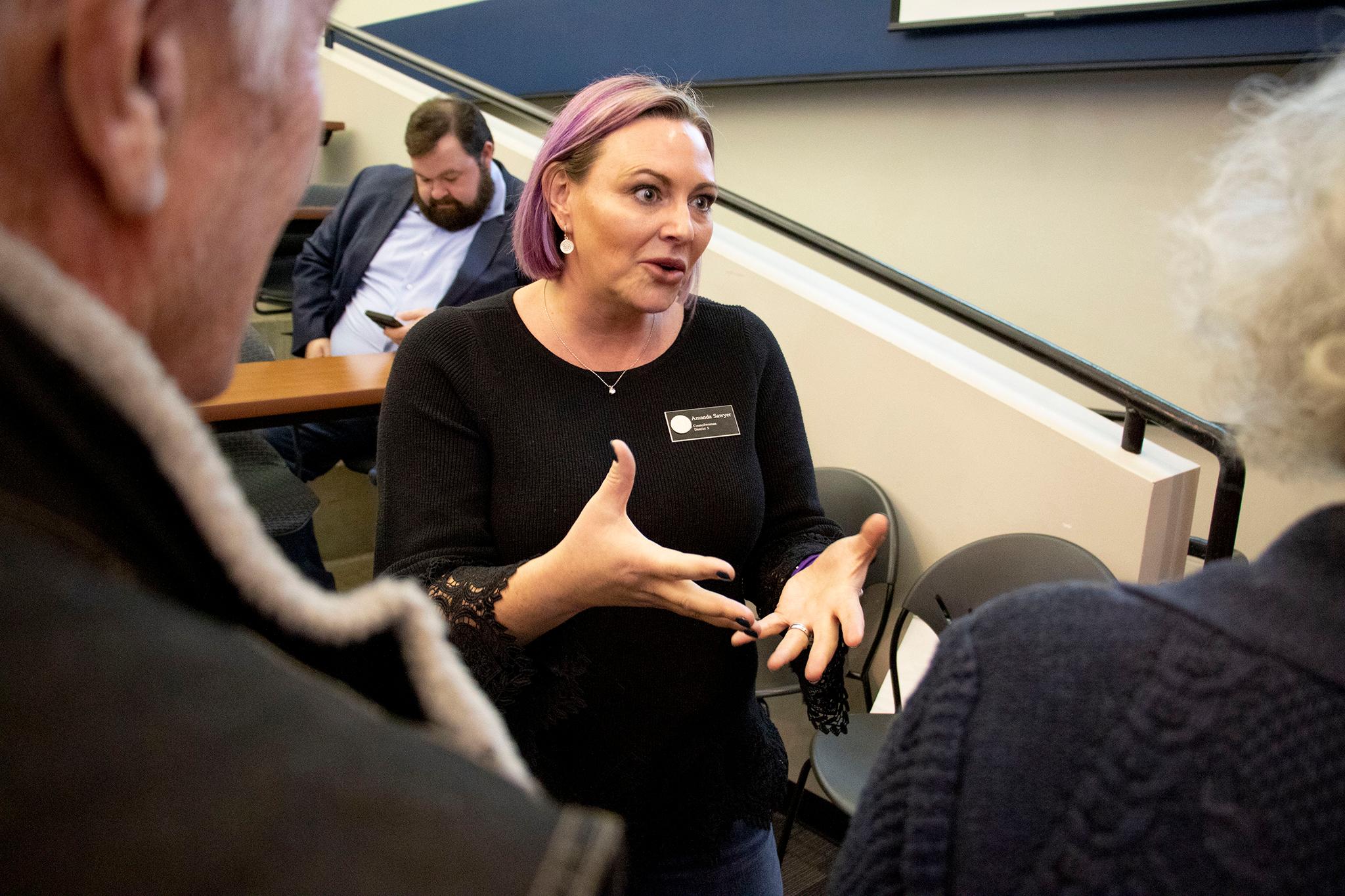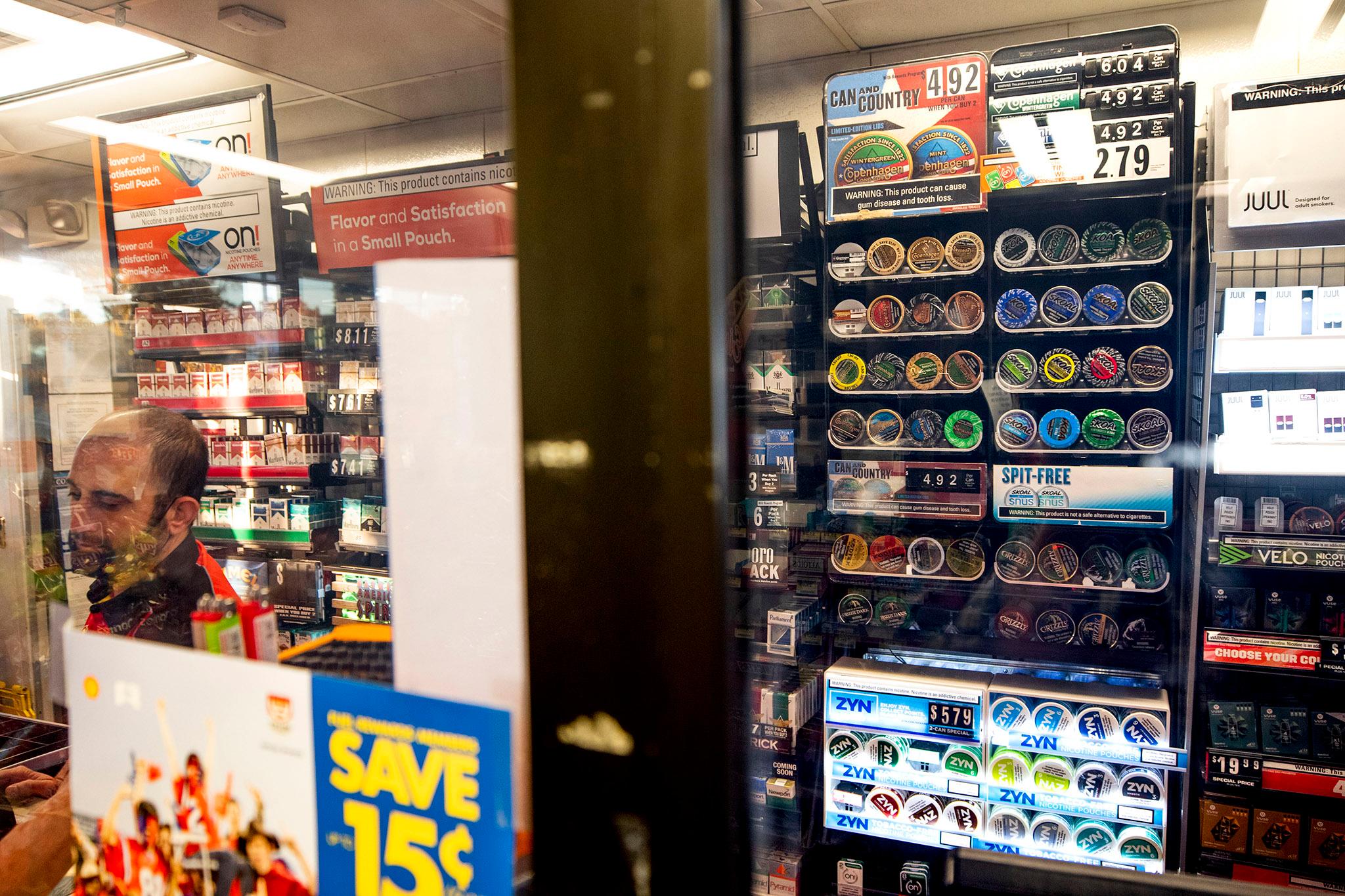Councilmember Kevin Flynn hates smoking.
He said so during a Denver City Council committee on Wednesday, as he and his colleagues considered a sweeping law banning flavored tobacco product sales in Denver. But despite his personal disapproval, he said he's hearing from people who enjoy it. They tell him banning these products makes the city seem too "paternalistic."
The feedback prompted him to suggest a change to the original bill that might make him more inclined to vote for it. And he wasn't the only lawmaker to do this: His proposal to allow the sale of menthol cigarettes was among the five proposed tweaks to the bill introduced by Councilmember Amanda Sawyer and Debbie Ortega earlier this month.
Sawyer and Ortega are proposing the bill primarily to curb youth smoking. Sawyer specifically mentioned vaping among teens, which the U.S. Surgeon General labeled an epidemic in 2018.
"So what is the problem we're trying to solve?" Sawyer said. "The youth smoking and vaping epidemic is what we are trying to solve for here."
The committee on Wednesday could have voted to forward the bill to the full Denver City Council. Instead, members chose to postpone the bill for another meeting, scheduled for Nov. 17
The bill wouldn't ban the use of flavored tobacco products in the city, only its retail sale. It would mean local shops could not sell flavored tobacco products including cigarettes, cigars, pipe tobacco, hookah tobacco, snuff, chewing tobacco, dipping tobacco, dissolvable tobacco products, and nicotine-enhanced products.

However, the tweaks proposed on Wednesday would include exemptions for hookah tobacco; premium and flavored cigars, as well as pipe tobacco; and menthol cigarettes. Councilmember Paul Kashmann introduced the amendment to remove cigars and pipe tobaccos from the bill, noting he doesn't believe kids are "running around smoking $8 cigars."
Councilmember Jolon Clark, who introduced the amendment for the bill exempting hookah tobacco, said as written right now, the bill would effectively put hookah lounges out of business since hookah tobacco is almost exclusively flavored. Earlier during the same meeting, the committee forwarded a bill creating more regulations for hookah lounges in the city.
"The threat to our youth is not here in hookah smoking," Clark said.
Councilmember Kendra Black -- who does not support a ban on flavored tobacco products -- wants the bill changed to have tobacco-only stores like Smoker Friendly to allow only people 21 years or older inside, and to require retailers that sell tobacco products to have scanners or other software that can verify IDs.
While the ban is framed as a way to help young people avoid smoking, Black said it would end up affecting adults. She likened the ban to Prohibition and said it could lead to some small businesses shutting down. She would support having stiffer penalties for stores violating laws for selling to minors.
"This is not being done with a scalpel, it's being done with a sledgehammer," Black said. "We are going to impact adults and prevent them from being adults in buying products that they want, but it's not going to prevent kids from getting their hands on tobacco products."
Each time a proposal was made, Sawyer spoke out against why she opposed making the changes to the bill. For example, after Flynn talked about his proposal to exempt menthol cigarettes, she rebuffed his comment suggesting adults should still be allowed to buy these kinds of cigarettes in Denver.
"And so can 50 percent of teenagers," Sawyer said in response to Flynn's comments.
Michael Strott, Mayor Michael Hancock's spokesperson, said in a statement that while the mayor agrees with the bill's goal to reduce youth nicotine use, "[Mayor Hancock] believes it's an action that should be done at the state level through the legislature, and not solely done in Denver."
Other Colorado cities with restrictions on flavored tobacco products include Aspen, Boulder, Edgewater and Glenwood Springs. Major cities with similar laws include San Francisco and Washington, D.C.













